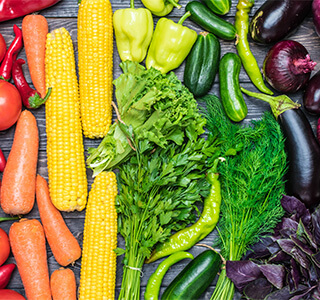Why You Should Be Eating a Rainbow of Summer Veggies
If your plate has the color variety of a desert, you may want to try adding some vegetables. Eating a rainbow of vegetables not only keeps you on track for all of your health goals, they also provide high amounts of important nutrients, especially when they are of the heirloom variety.
The phytochemicals, which gives them their hue, in heirloom vegetables offer up a variety of health benefits, like heart health, eye health, immune support, that may not be as present in hybrid vegetables.
So swap out your usual veggies picks for these delicious, nutritious options.
Heirloom tomatoes
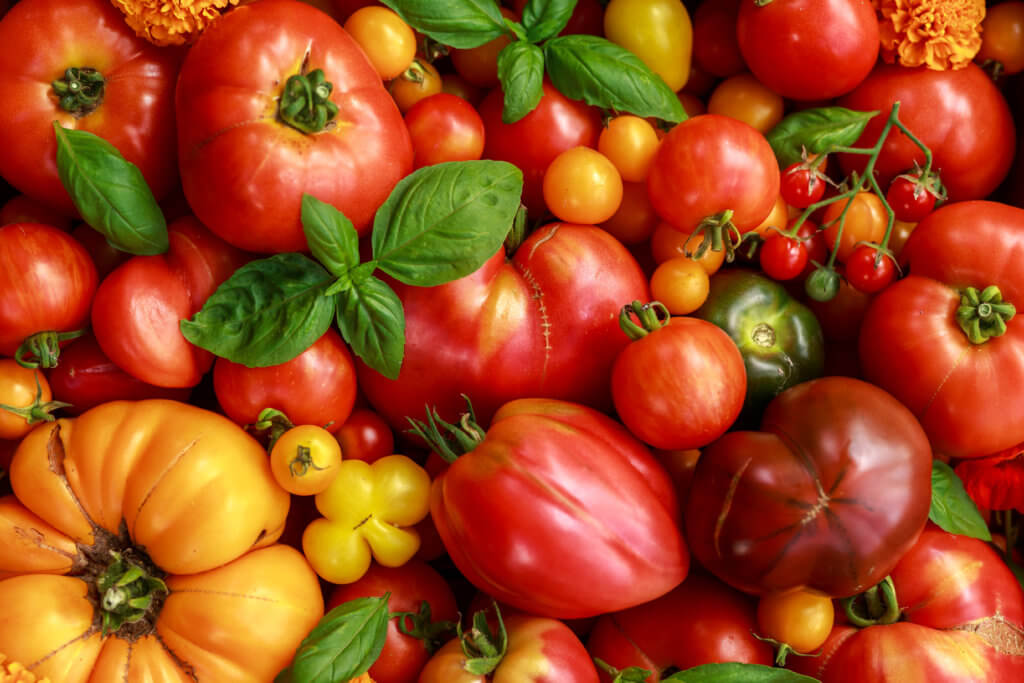
Heirloom tomatoes not only taste different, they also contain higher nutritional value than hybrid tomatoes. Hybrid tomatoes are grown specifically for size and color, so they may contain less phytochemicals and vitamin C than the heirloom variety.
Yellow and purple carrots
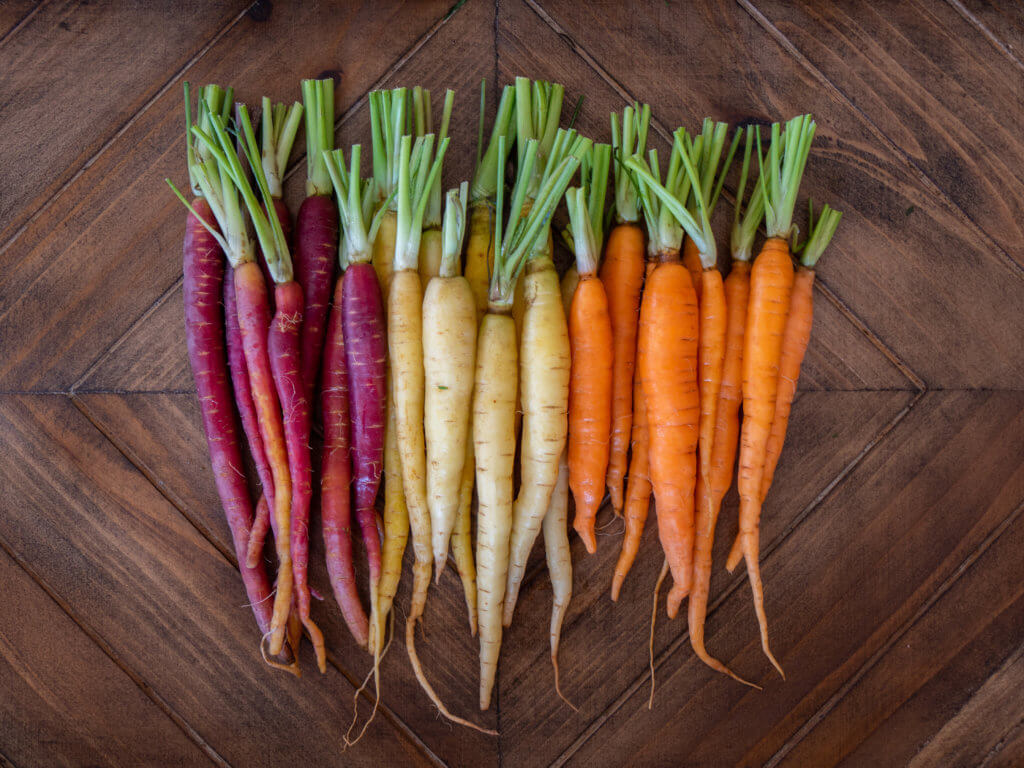
Instead of loading your plate with just orange carrots, spice it up and sneak in a few yellow and purple carrots, too. The different colored carrots pack different nutritional punches; orange provides the most carotenoids, purple provides the anthocyanins, and yellow has the most of the carotenoid lutein.
Purple sweet potatoes
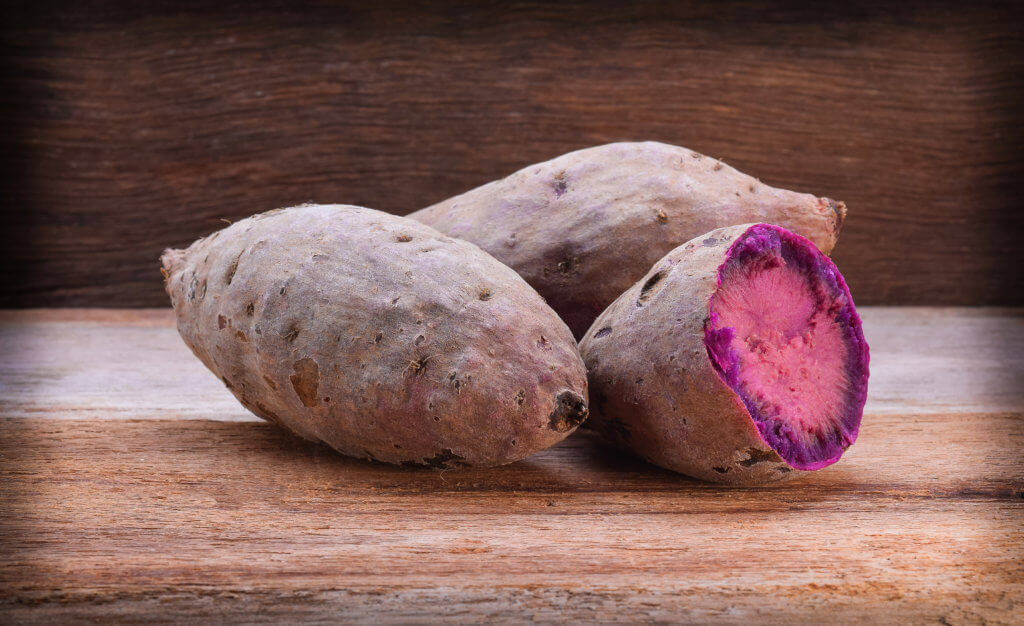
Everybody knows about the orange sweet potato, whether they are being used as a healthier alternative to french fries, russet, golden, or red potatoes. However, the orange sweet potato has a sister, the purple sweet potato. Purple sweet potatoes have more anthocyanins, a kind of flavonoid, or antioxidant, than orange sweet potatoes.
Orange cauliflower
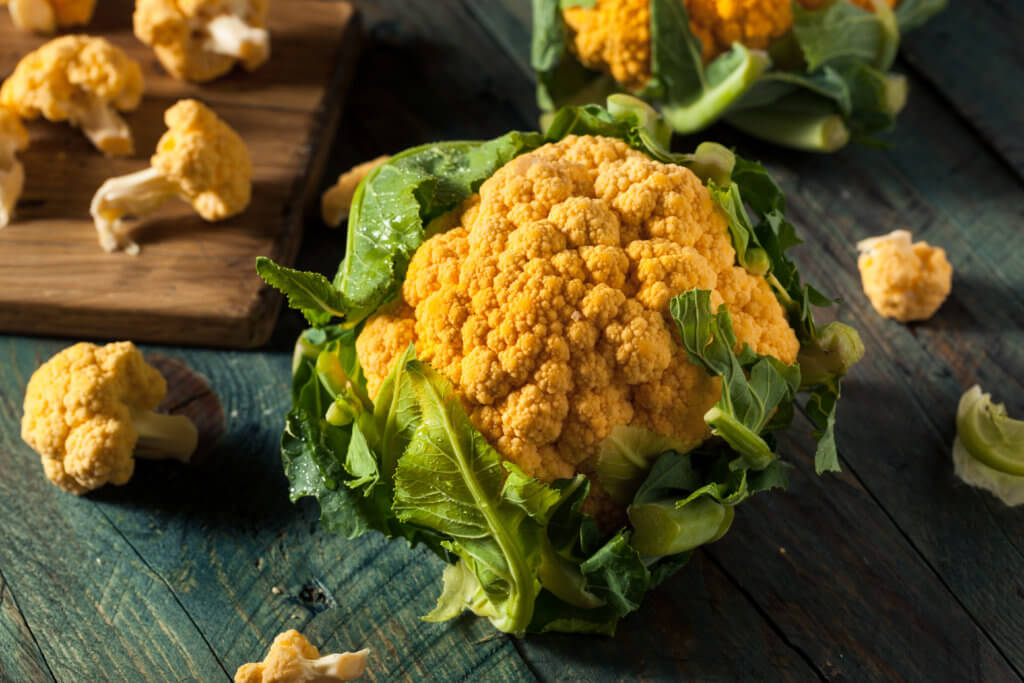
Orange cauliflower tastes nearly the same as white cauliflower, but has many more nutrients. The color comes from phytochemical carotenoids, and when compared to white cauliflower, it has about 25 percent more vitamin A. The phytochemicals protect the eyes and help the skin and nails.
Pink Watermelon Radishes
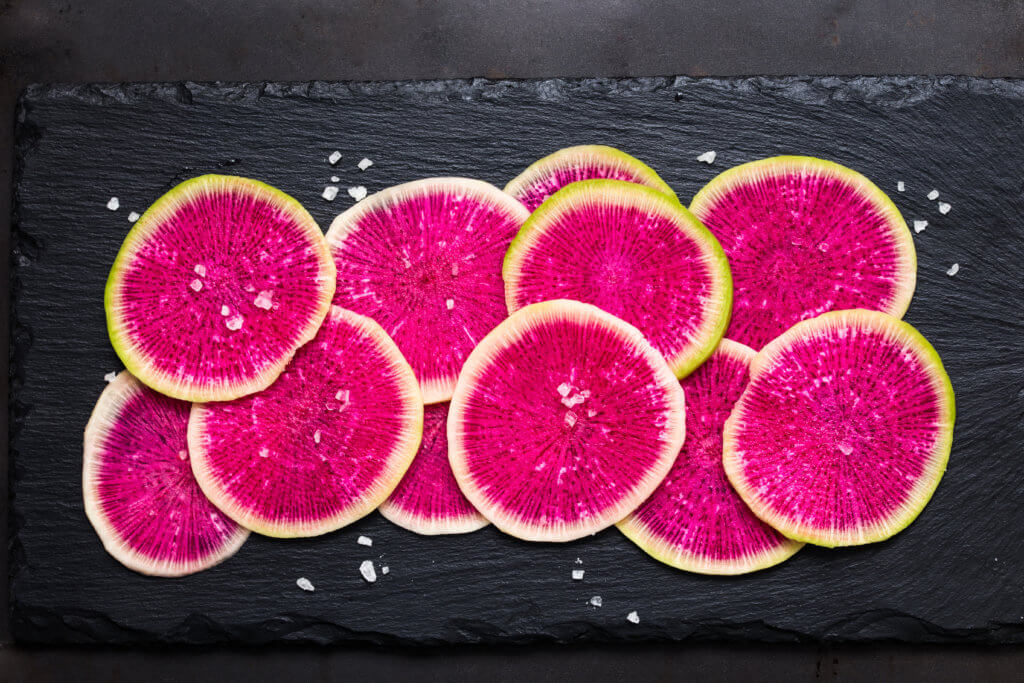
Pink watermelon radishes contain high amounts of minerals like phosphorus and potassium. They are also an excellent source of fiber, vitamin C, and other nutrients, particularly when eaten raw.
Black rice
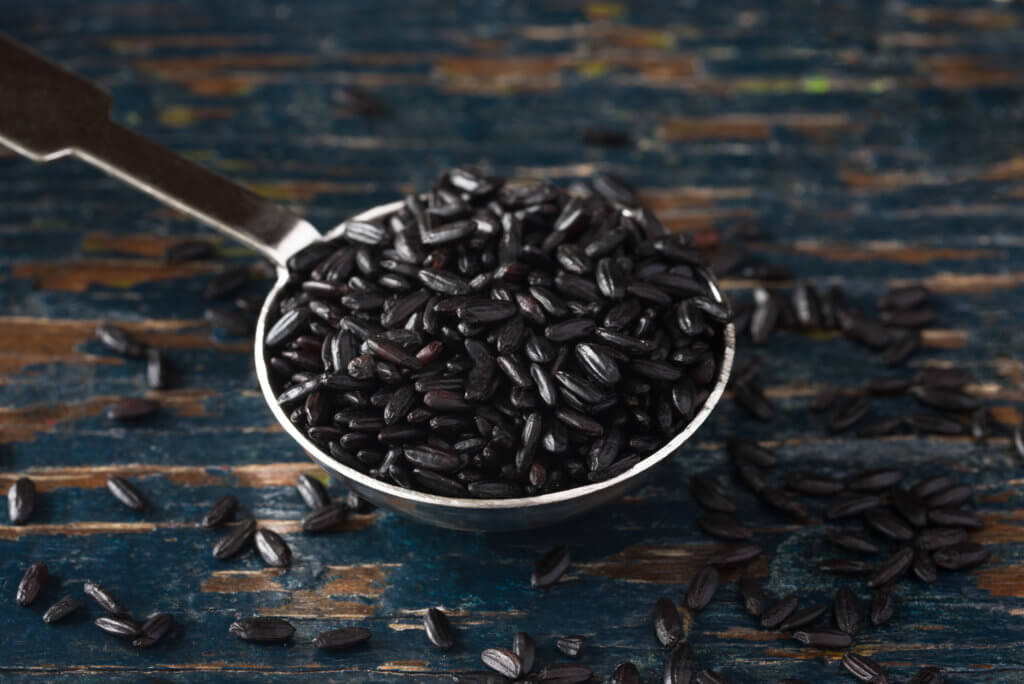
While black rice is a grain and not a vegetable, its nutritional value is too high compared to white rice to leave it out. The bran hull of black rice contains one of the highest levels of anthocyanins found in food and it is a great source of iron, vitamin E, and antioxidants.
